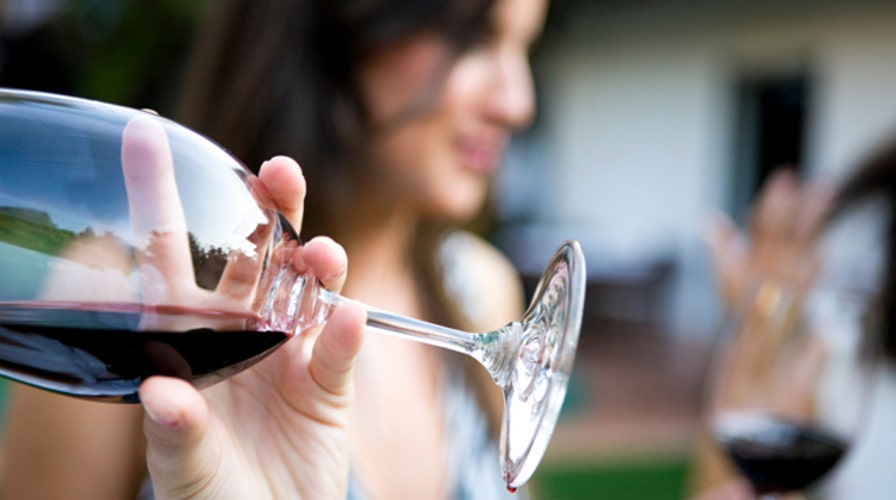Study Links Alcohol to Breast Cancer
Drinking higher levels of alcohol has been associated with an increased risk of breast cancer. But a new study finds out if drinking patterns over a woman’s lifetime also puts her in danger
Drinking three to six alcoholic beverages a week could increase a woman’s chance of developing breast cancer, according to a new study.
Researchers at Harvard Medical School and Brigham and Women’s Hospital looked at the correlation between breast cancer and alcohol consumption in nearly 106,000 women during a 28-year span.
During that time, 14 percent of the women were diagnosed with breast cancer, and the results indicated that drinking three to six alcoholic drinks per week was associated with a 15 percent increased risk of the disease.
The study appears in Wednesday's Journal of the American Medical Association.
“What these researchers were able to determine is that even small or moderate levels of alcohol consumption, three drinks a week, is associated with a higher chance of breast cancer,” said Dr. Joe Crowe of the Cleveland Clinic, who was not a part of this study.
“It really is the alcohol consumption over a period of time. It’s not the frequency of consumption. So, you can have a little bit on a frequent basis, and the total amount isn’t very much. It’s the total amount that matters.”
The study also found that women who drank at least two drinks a day had a 51 percent increased risk of breast cancer compared to those who never drank. The risk is increased by 10 percent for every 10 grams of alcohol consumed daily. That's equal to a little less than one 12-ounce bottle of beer, a 4-ounce glass of wine or a shot of whiskey. The increasingly elevated risks were a little higher than seen in other research. It made no difference whether the women drank liquor, beer and wine.
“This is important information,” Crowe said. “And it needs to be put in a general overall lifestyle context.But it’s not as though somebody should look at this and run off and panic about her typical, lower-level, alcohol consumption.”
It is important to note that this study only shows an association – it doesn’t prove that drinking causes breast cancer.
There could be some other reason light drinkers appeared to be at higher risk -- maybe they were less active than nondrinkers or had unhealthy diets, said Dr. Susan Love, a breast cancer expert and author who runs a Santa Monica, Calif.-based research foundation.
Given research suggesting that drinking moderate amounts of alcohol including red wine may protect against heart disease, deciding whether to avoid alcohol is a personal choice that should be based on a woman's other risks for breast cancer and heart disease, the researchers said.
Increased risks also were seen in binge drinkers -- women who consumed at least three drinks daily in a typical month. The results do not apply to women who may have partied hard during week-long vacations but otherwise rarely drank, said lead author Dr. Wendy Chen, a researcher at Brigham and Women's Hospital and Dana-Farber Cancer Institute and an assistant professor at Harvard Medical School.
"No one should feel guilty about one particular week or two," Chen said.
The results don't mean women can avoid breast cancer by not drinking, and they don't answer whether women can lower their risk if they stop drinking, said breast cancer specialist Dr. David Winchester, chief of surgical oncology with NorthShore University HealthSystem in Evanston, Ill.
The Associated Press contributed to this article.

